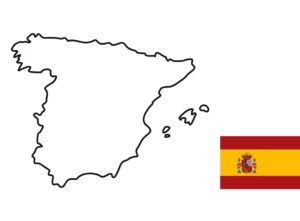Our focal regions
Spain

About the focal region
In the Ebro Valley basin, there is a growing positive attitude towards the biobased sector, with recognition of its importance and benefits such as biodiversity protection and job opportunities. However, there is still a limited understanding among decision makers and citizens regarding the full impact and potential of the bioeconomy. The region, consisting of Navarra, Aragon, and Catalonia, is primarily rural, with the agro-industrial sector, including agricultural crops and pig farming, being the dominant industry. One of the main barriers hindering the development of the bioeconomy is the lack of knowledge and awareness about the potential of biomass, as well as a lack of connectivity between relevant stakeholders.
To address these challenges, MainstreamBIO will play a crucial role in facilitating services and support for interested stakeholders in the region. These services will include networking opportunities to find partners and investors, business model development, and business mentoring. The project aims to increase awareness and promote the adoption of small-scale biobased solutions in rural areas, while also facilitating knowledge transfer and collaboration among various agents in the bioeconomy. By connecting stakeholders and enhancing understanding, MainstreamBIO aims to unlock the untapped potential of the region’s biomass resources and foster sustainable and circular bioeconomy practices.
In addition to the agro-industrial sector, there has been a recent development of the food processing industry in the Ebro Valley region, further highlighting the importance of the bioeconomy in diversifying and expanding the economic opportunities in these rural areas.

Regional feedstock and value chains

Opportunities and Challenges
- Extensive cultivation area of over 3.8 million hectares of agricultural land and 4.4 million hectares of forest area in the region.
- High potential for recoverable biomass, such as approximately 600,000 tonnes per year of recoverable forest biomass in Aragon.
- Significant livestock production, with a focus on pigs and poultry, including Catalonia having the highest number of pigs in the country with 8,192,796.
- Strong presence of agri-food processing industry in more populated areas, leading to the generation of approximately 200,000 tonnes per year of waste and by-products in Navarre.
Opportunities:
- Potential of unused field residues and compatibility for bioeconomy uses.
- EU environmental laws and increasing price of energy.
- Communication infrastructure and agro-industrial activity already present.
- Biomass as engine for rural development.
Challenges:
- Social acceptance of agrobiomass.
- Technologies competitive and appealing to the eyes of end users.
- Establish new logistics for underutilised feedstock.
- Create collaborative structures with the quadruple helix.

Context and needs of rural stakeholders

What MainstreamBIO brings
- Lack of knowledge and awareness of biomass potential as a barrier to bioeconomy development.
- Need for more research, innovation, and knowledge transfer in the region.
- Coordinated action and administrative support are required to promote the bioeconomy.
- Creation of collaborative structures to facilitate the uptake of bioeconomy initiatives in the region.
- The project aims to bring together members of the quadruple helix (academia, industry, government, and civil society) to co-create solutions tailored to the regions.
- MainstreamBIO will provide services such as networking to help stakeholders in the region find partners, investors, and support for business model development.
- The project will increase awareness of small-scale biobased solutions in rural areas.
- MainstreamBIO will facilitate knowledge transfer between different stakeholders involved in the project.

Contact
Beatriz Deltoro ([email protected])






